Grass Valley – How a small town changed TV
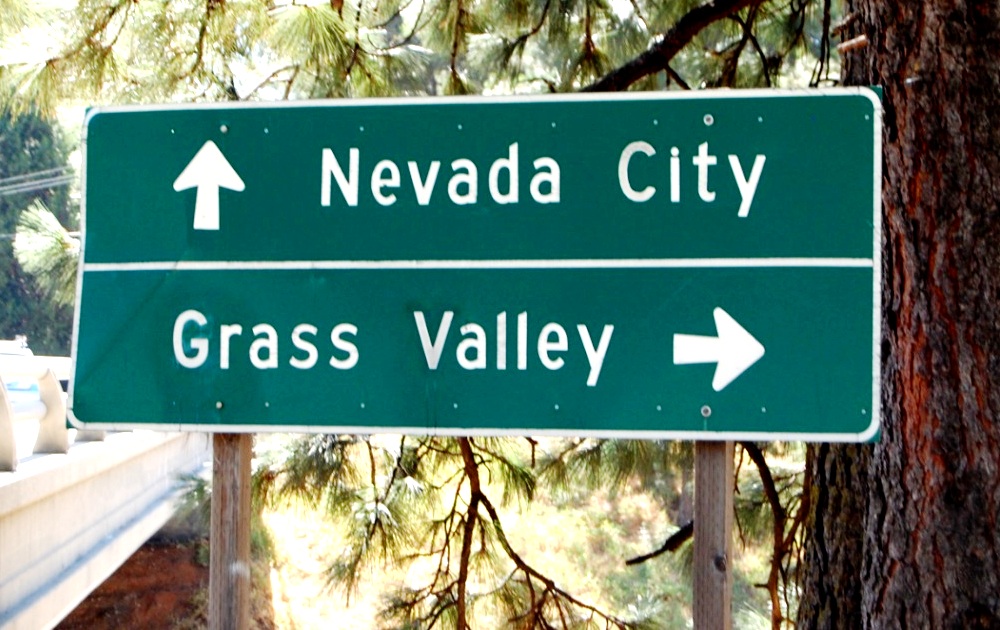 Elevator pitch A: There's a small town in northern California, and if you work in the technical or production areas of the television industry anywhere in the world, you know the name of the town. You probably wouldn't know it as a place, but as a vendor of high end television production equipment. The name of that town is Grass Valley.
Elevator pitch A: There's a small town in northern California, and if you work in the technical or production areas of the television industry anywhere in the world, you know the name of the town. You probably wouldn't know it as a place, but as a vendor of high end television production equipment. The name of that town is Grass Valley.
Elevator pitch B: There's a company headquartered in Montreal Canada that has a few thousand employees, with facilities around the globe, that took the name of a small town in northern California. The name of that company is Grass Valley.
The book explains why both those statements are true.
This is the story of how one company in a very unlikely place, had an impact on a town, that was quickly becoming a backwater. This company also ended up technologically affecting the entire television industry, or as it is simply known today: the media. There was a marketing plug the company started using 25 years ago that stated "if you are watching television, you are watching Grass Valley." The company's reach had gotten to a point where very few television facilities were not using Grass Valley equipment somewhere in their facility. This is still true today.
(The Grass Valley Company and the Industry)
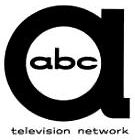 The third, in a three-network race at the time, ABC, in the 60s got Grass Valley into the video business. Up until then Grass Valley was a hand to mouth operation that built audio products, along with anything else that would keep the lights on. While the other two networks had far more financial and technical resources, NBC backed up by RCA, and CBS, with its venerable CBS Labs, ABC came to rely on the plucky little concern up in the foothills of the Sierra Mountains.
The third, in a three-network race at the time, ABC, in the 60s got Grass Valley into the video business. Up until then Grass Valley was a hand to mouth operation that built audio products, along with anything else that would keep the lights on. While the other two networks had far more financial and technical resources, NBC backed up by RCA, and CBS, with its venerable CBS Labs, ABC came to rely on the plucky little concern up in the foothills of the Sierra Mountains.
What ABC didn't have in heft, it had in the creative talents of Roone Arledge and Julius Barnathan. Those two put ABC Sports on the map, with "Wide World of Sports," and "Monday Night Football." Often the two brought their "far-out-there" ideas to the "Group," as the company was commonly called.

ABC early on made the company, but because of the mindset that got installed into the company, it later hurt the company. The Grass Valley Group were masters of the analog universe. But in the 80s a behemoth vendor of both consumer and professional video equipment, Sony, had new plans for the industry. First digital, and then high-definition (HD) television. Sony was use to making markets, Grass Valley was weaned by reacting to what their customer base wanted. At the time, still one of the Groups largest customers, ABC was not interested in either.

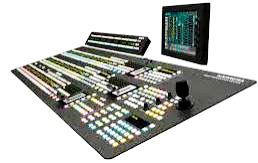
Sony and Grass Valley were actually allies up until then. Sony wanted Grass Valley to partner with them in pushing an early analog version of HD. The head of the Group at the time told the Japanese to "show them a market." Of course, there wasn't one yet, but a no from Grass Valley wasn't going to stop Sony. They started producing the Groups marquee product, the video production switcher, which they hadn't offered before. Plus, Sony's offering was digital from day one. These actions nearly killed Grass Valley in the late 90s.
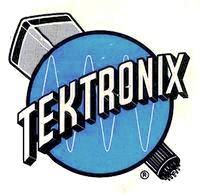
Tektronix had bought Grass Valley in 1974, and while the Group was having a renaissance in the 80s, the 90s became dark because of the reasons just stated, but also the mother company was having monumental issues also. George Soros was conducting a "Green Mail" surge as he thought the company was holding on to too much cash, and that the parts of the company were worth more than the whole. In 1999, at the height of the dot com crash, along with a couple other factors that were compounding the issues facing high tech and specifically television, Tektronix spun itself apart, that included Grass Valley.
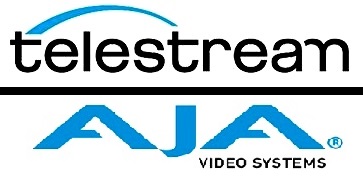
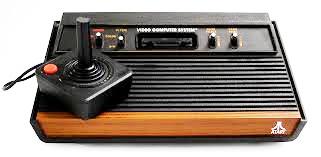 By the time of the sale the Group, had created a tech eco-system around it in the area. While only one company was officially spun out of the Group, many ex-Grass Valley employees and others drawn to the area by that eco-system started a few dozen startups. Most would come and go, but a few managed to become common names in the television industry to this day. The original Atari gaming cartridge system came out of the same building that had originally incubated the Group.
By the time of the sale the Group, had created a tech eco-system around it in the area. While only one company was officially spun out of the Group, many ex-Grass Valley employees and others drawn to the area by that eco-system started a few dozen startups. Most would come and go, but a few managed to become common names in the television industry to this day. The original Atari gaming cartridge system came out of the same building that had originally incubated the Group.
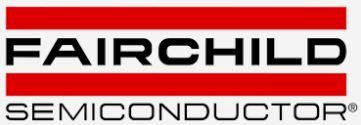

Once out of Tektronix's orbit the original company that "started it all" in the area, to quote a Fairchild Semiconductor boast from the 70s in Silicon Valley, was bought and sold six times. It gathered corporate DNA from over 30 companies, some from household recognizable names. But through it all the company's name survived, but its center of gravity did not. Both Tektronix and Thomson, the third owner, tried to slowly retire the Grass Valley name. Both gave up.
 The Groups anchor to the town started to fray when Tektronix bought it, and it started ultimately reporting to Beaverton, Oregon. The corporate headquarters was a bit nebulous under the second owner. But because a major product that was created by Tektronix and grouped in with Grass Valley stayed with Grass Valley after the sale a lot of the center of gravity was still pointed north. The second owner, a dentist, only had the company for a couple years before Thomson came calling. Nothing of a headquarters nature remained in Grass Valley. A large chunk of DNA from other related companies came from Thomson, as it was trying to offer breath in its offerings to the industry, as had RCA until the middle 80s, and Sony was currently trying to do. The name of the game was to expand into adjacent markets when possible. This became the mantra of a future owner.
The Groups anchor to the town started to fray when Tektronix bought it, and it started ultimately reporting to Beaverton, Oregon. The corporate headquarters was a bit nebulous under the second owner. But because a major product that was created by Tektronix and grouped in with Grass Valley stayed with Grass Valley after the sale a lot of the center of gravity was still pointed north. The second owner, a dentist, only had the company for a couple years before Thomson came calling. Nothing of a headquarters nature remained in Grass Valley. A large chunk of DNA from other related companies came from Thomson, as it was trying to offer breath in its offerings to the industry, as had RCA until the middle 80s, and Sony was currently trying to do. The name of the game was to expand into adjacent markets when possible. This became the mantra of a future owner.
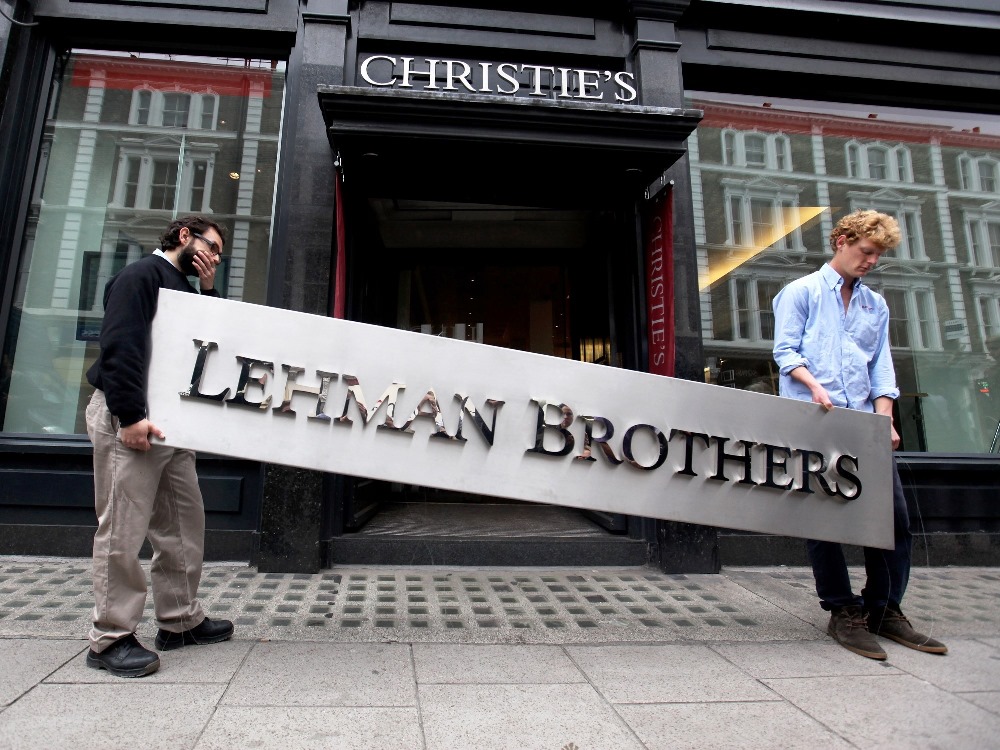
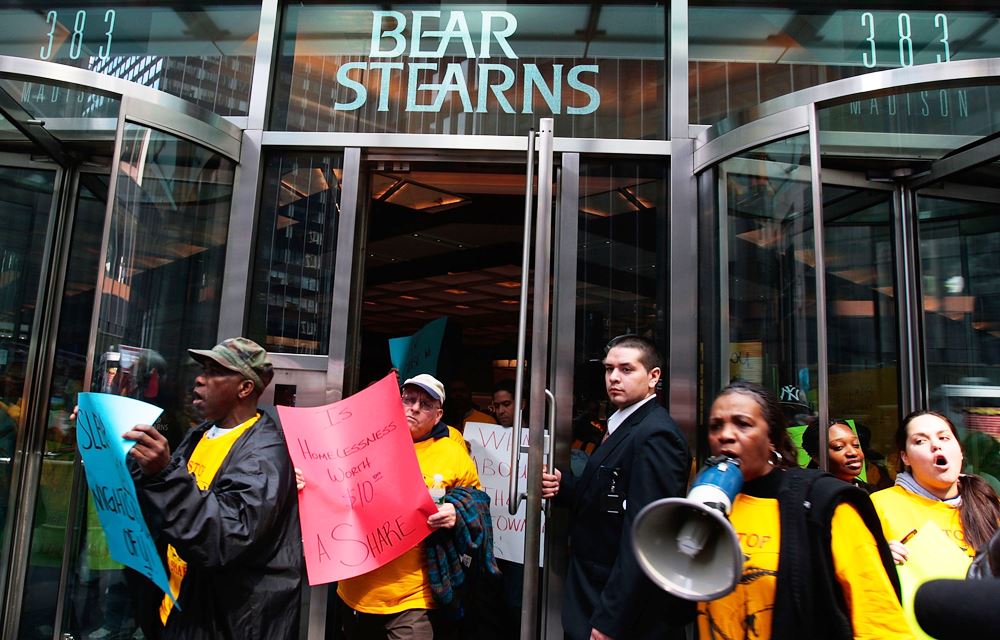 When the 2008 financial crisis hit, Thomson defaulted on some of its debt covenants, and there was a fire sale to Francisco Partners. Interestingly Thomson took on the name of a company it kept, Technicolor, to lose the Thomson baggage it had accumulated over the prior 10 years. Francisco kept Grass Valley for a few years and then fliped it to cash out. Now it's Belden Cable's turn, who was also trying to put the likes of RCA together: offering everything television production, from lens to transmit antennas. It had bought a number of companies in the industry before it acquired Grass Valley.
When the 2008 financial crisis hit, Thomson defaulted on some of its debt covenants, and there was a fire sale to Francisco Partners. Interestingly Thomson took on the name of a company it kept, Technicolor, to lose the Thomson baggage it had accumulated over the prior 10 years. Francisco kept Grass Valley for a few years and then fliped it to cash out. Now it's Belden Cable's turn, who was also trying to put the likes of RCA together: offering everything television production, from lens to transmit antennas. It had bought a number of companies in the industry before it acquired Grass Valley.
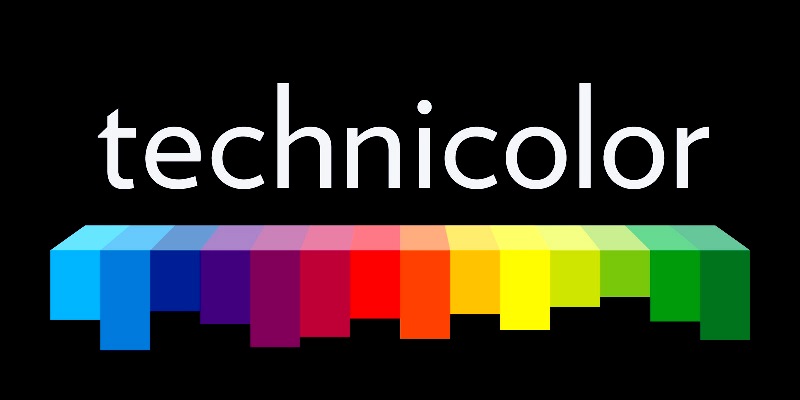


Again, while the Grass Valley name is kept, it is now run by another Belden acquisition, a company called Miranda, based out of Montreal. Grass Valley, still with the name of a small California town, is no longer an American company. As a nod to Miranda, the Green Grass Valley logo is given Miranda's violet shade.

Problem is that Belden is a buttoned down, make their numbers quarterly, company. The combined companies they had in the adjacent media market, including Miranda/Grass Valley, was over 30% of their revenues. These companies do not have revenue cycles in sync with the calendar. The industry Grass Valley serves does not buy equipment generally because a new model is out. Almost all of what companies like Grass Valley sell are not consumables. They are expected to function until there is a reason to replace them.


What are those reasons? Events and format changes generally. The Olympics, new sports contracts, a new facility, or when the government forces a change in format, like the DTV revolution at the turn of the century. When HD caught on in the early 2000s, mainly due to sports, broadcasters were buying again for a while. Then what follows could be very long troughs of low cash flow. So even Belden needed to dump them.
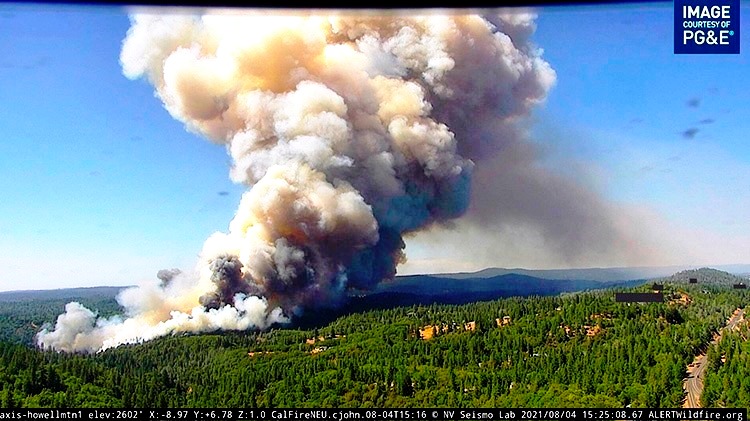

What now? The book explains the possibilities. An evolution of how TV shows are produced was slowly occurring, and then the pandemic struck. The evolution became a revolution. The business today is rapidly becoming unrecognizable to the engineers and production folks who produced TV 20 years ago. It also looks at the tech center that grew around the Group, and the headwinds that plague the area, technologically, economically, environmentally, and how doing business in California is tough, especially in a regulation tough county, in that tough state. Also, not figuratively, but actually, the area is in real danger of burning down. Fire had shaped the course of the Group when it was centered in the area. There's danger, but still hope for what sprung up in this unlikely place.
We'll close with a couple serendipitous facts: The Grass Valley area is known for its gold mines. If it was not for one mine owner, there most likely would not have been a Grass Valley Group. To add to the cause and effect roll of the dice, the final Grass Valley building in the area sits atop the abandoned mine complex of that mine owner.
Finally, one Grass Valley CEO sold the company twice, and then was brought back in to specifically sell it for a third time.

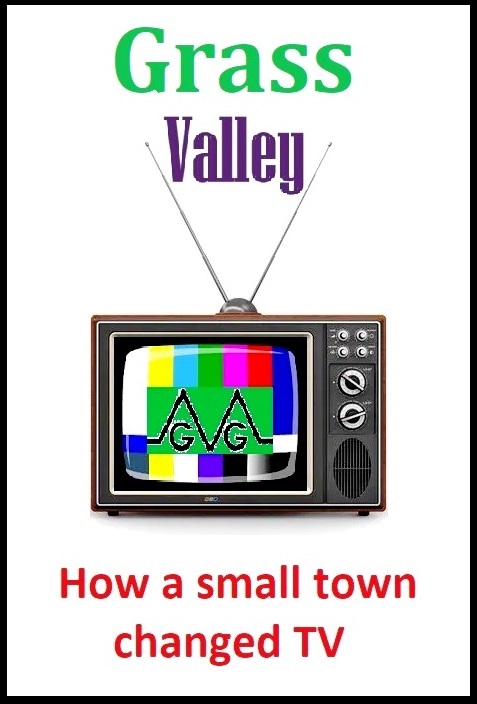

![]()

 The third, in a three-network race at the time, ABC, in the 60s got Grass Valley into the video business. Up until then Grass Valley was a hand to mouth operation that built audio products, along with anything else that would keep the lights on. While the other two networks had far more financial and technical resources, NBC backed up by RCA, and CBS, with its venerable CBS Labs, ABC came to rely on the plucky little concern up in the foothills of the Sierra Mountains.
The third, in a three-network race at the time, ABC, in the 60s got Grass Valley into the video business. Up until then Grass Valley was a hand to mouth operation that built audio products, along with anything else that would keep the lights on. While the other two networks had far more financial and technical resources, NBC backed up by RCA, and CBS, with its venerable CBS Labs, ABC came to rely on the plucky little concern up in the foothills of the Sierra Mountains.



 By the time of the sale the Group, had created a tech eco-system around it in the area. While only one company was officially spun out of the Group, many ex-Grass Valley employees and others drawn to the area by that eco-system started a few dozen startups. Most would come and go, but a few managed to become common names in the television industry to this day. The original Atari gaming cartridge system came out of the same building that had originally incubated the Group.
By the time of the sale the Group, had created a tech eco-system around it in the area. While only one company was officially spun out of the Group, many ex-Grass Valley employees and others drawn to the area by that eco-system started a few dozen startups. Most would come and go, but a few managed to become common names in the television industry to this day. The original Atari gaming cartridge system came out of the same building that had originally incubated the Group.


 When the 2008 financial crisis hit, Thomson defaulted on some of its debt covenants, and there was a fire sale to Francisco Partners. Interestingly Thomson took on the name of a company it kept, Technicolor, to lose the Thomson baggage it had accumulated over the prior 10 years. Francisco kept Grass Valley for a few years and then fliped it to cash out. Now it's Belden Cable's turn, who was also trying to put the likes of RCA together: offering everything television production, from lens to transmit antennas. It had bought a number of companies in the industry before it acquired Grass Valley.
When the 2008 financial crisis hit, Thomson defaulted on some of its debt covenants, and there was a fire sale to Francisco Partners. Interestingly Thomson took on the name of a company it kept, Technicolor, to lose the Thomson baggage it had accumulated over the prior 10 years. Francisco kept Grass Valley for a few years and then fliped it to cash out. Now it's Belden Cable's turn, who was also trying to put the likes of RCA together: offering everything television production, from lens to transmit antennas. It had bought a number of companies in the industry before it acquired Grass Valley.


 What are those reasons? Events and format changes generally. The Olympics, new sports contracts, a new facility, or when the government forces a change in format, like the DTV revolution at the turn of the century. When HD caught on in the early 2000s, mainly due to sports, broadcasters were buying again for a while. Then what follows could be very long troughs of low cash flow. So even Belden needed to dump them.
What are those reasons? Events and format changes generally. The Olympics, new sports contracts, a new facility, or when the government forces a change in format, like the DTV revolution at the turn of the century. When HD caught on in the early 2000s, mainly due to sports, broadcasters were buying again for a while. Then what follows could be very long troughs of low cash flow. So even Belden needed to dump them.
